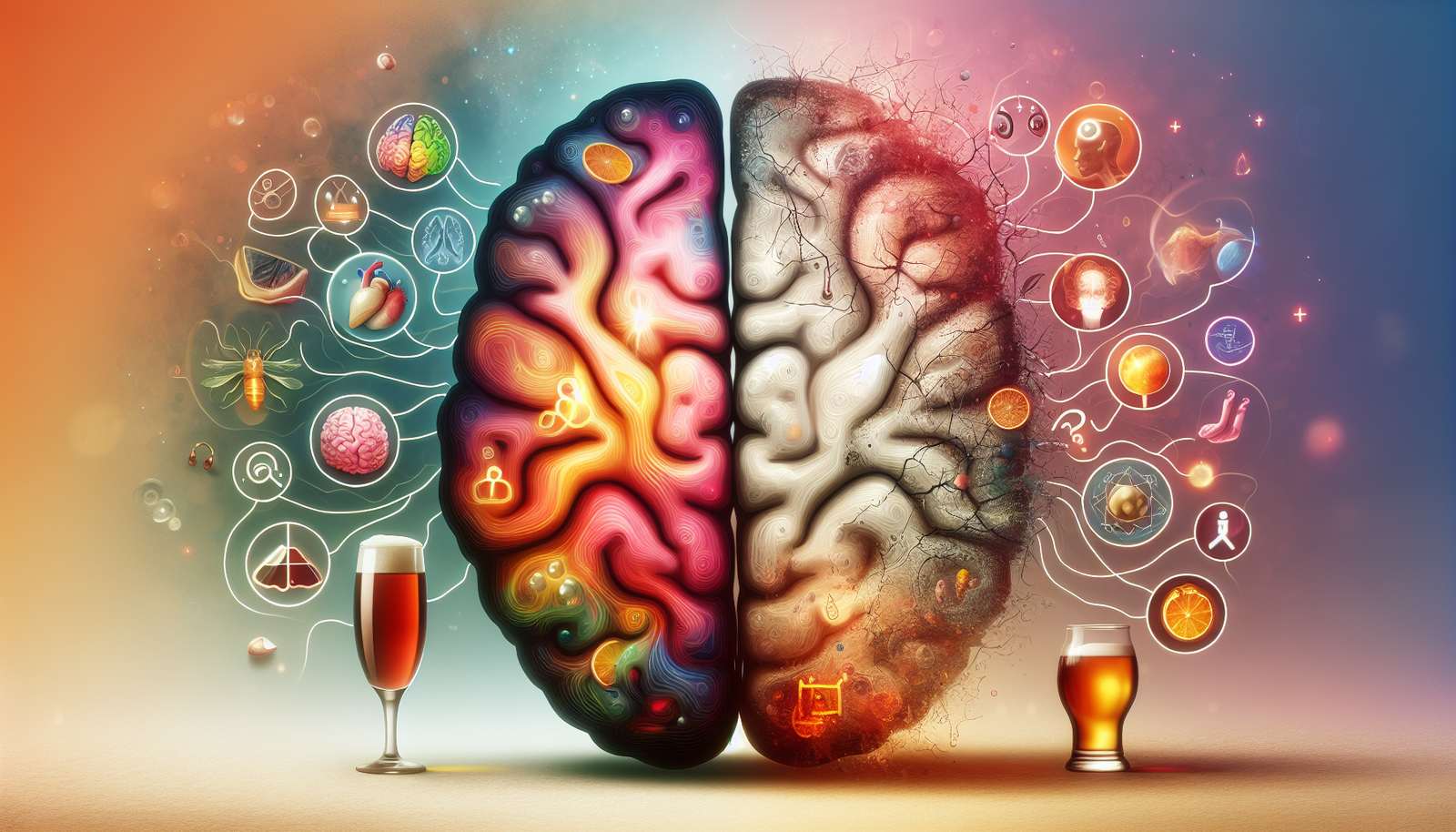
Alcohol Consumption Linked to Increased Dementia Risk and Brain Damage
The Alarming Connection Between Alcohol and Dementia
Recent studies have suggested a concerning relationship between alcohol consumption and the onset of dementia. As individuals age, the risk of developing dementia increases, but new evidence indicates that drinking alcohol may exacerbate this risk. Research points to the possibility that alcohol can cause neurodegeneration, leading to cognitive decline and memory issues. Understanding the dynamics of this relationship can empower individuals to make informed decisions about their drinking habits.
What Is Dementia?
Dementia is not a specific disease but rather an umbrella term for a variety of cognitive impairments that interfere with daily life and functioning. The most common types of dementia include:
- Alzheimer’s Disease: The most prevalent form of dementia, characterized by plaque buildup in the brain.
- Vascular Dementia: Caused by reduced blood flow to the brain, often following a stroke.
- Lewy Body Dementia: Associated with abnormal protein deposits in the brain.
- Frontotemporal Dementia: Degeneration of the frontal and temporal lobes, affecting personality and behavior.
How Alcohol Affects Brain Health
Alcohol has long been known to affect brain chemistry and architecture, resulting in various degrees of cognitive impairment. Here’s how alcohol consumption can damage brain health:
1. Neurotoxicity
Alcohol can be neurotoxic, meaning it can damage nerve cells. Research has shown that chronic alcohol consumption can lead to:
- Loss of Brain Volume: Chronic drinkers often experience a reduction in brain volume, particularly in the frontal lobe, which is crucial for decision-making and impulse control.
- Impaired Detoxification: The brain’s ability to detoxify itself can be compromised, leading to an accumulation of harmful substances.
2. Inflammation
Alcohol consumption can trigger inflammatory processes in the brain. Chronic inflammation is associated with:
- Increased oxidative stress: Free radicals can damage cells and contribute to neurodegenerative diseases.
- Neuroinflammation: This can worsen the symptoms of existing cognitive conditions and contribute to the onset of dementia.
3. Vitamin Deficiency
Alcohol interferes with the absorption of essential vitamins, particularly:
- Vitamin B1 (Thiamine): Deficiency can lead to Wernicke-Korsakoff syndrome, a severe neurological disorder that includes confusion, memory loss, and coordination problems.
- Folate: Important for cell reproduction and repair, a deficiency can lead to further cognitive decline.
Evidence Linking Alcohol to Dementia Risk
Numerous studies provide compelling evidence linking alcohol consumption to an increased risk of dementia. Below are a few significant findings:
1. Epidemiological Studies
A large cohort study analyzed data from tens of thousands of adults over several years. The results indicated that heavy drinkers faced a 50% higher risk of developing dementia compared to moderate or non-drinkers. These findings underscore the potential dangers of excessive alcohol intake.
2. Longitudinal Studies
Longitudinal research following older adults over time has revealed that those who consume alcohol frequently are more likely to develop dementia symptoms earlier than their peers. The impact of drinking patterns—particularly binge drinking—has become a focal point in these studies.
3. Gender Differences
Research indicates that women may be more susceptible to alcohol-related cognitive decline than men. Factors contributing to this gender disparity include:
- Biological differences: Women generally have a higher blood alcohol concentration due to differences in body composition.
- Hormonal influences: Fluctuating hormone levels can affect how alcohol is metabolized.
Moderation and Its Protective Effect
While the implications of alcohol consumption are significant, it’s crucial to recognize that moderation plays a key role in determining risk. Research has shown that moderate alcohol consumption may actually offer some protective benefits against dementia.
- Social Engagement: Moderate drinking is often associated with social activities that can promote cognitive health.
- Cardiovascular Health: Some studies suggest that moderate alcohol consumption may benefit heart health, which is closely linked to brain health.
Practical Tips for Reducing Alcohol Intake
If you’re concerned about the potential impact of alcohol on your brain health, consider these practical strategies for reducing consumption:
- Set Limits: Establish a maximum number of drinks per week.
- Choose Alcohol-Free Days: Designate specific days of the week to abstain.
- Opt for Smaller Servings: Choose smaller glasses or share drinks to help control consumption.
- Stay Hydrated: Alternate alcoholic drinks with water to reduce overall intake.
Seeking Help and Support
For those struggling with alcohol use or dependency, seeking help is vital. Many resources are available to assist individuals in managing their drinking habits:
- Support Groups: Organizations like Alcoholics Anonymous (AA) provide a community of support and accountability.
- Therapy Options: Consulting a mental health professional can help address underlying issues related to alcohol use.
- Medical Interventions: Healthcare providers may offer medication or treatment options to help manage alcohol use.
Conclusion
The link between alcohol consumption and increased dementia risk highlights the importance of mindful drinking habits. While moderate drinking may have some protective effects, excessive consumption can lead to significant brain damage and cognitive decline. By understanding the potential risks and taking proactive steps, individuals can preserve their brain health and potentially reduce their risk of developing dementia as they age.